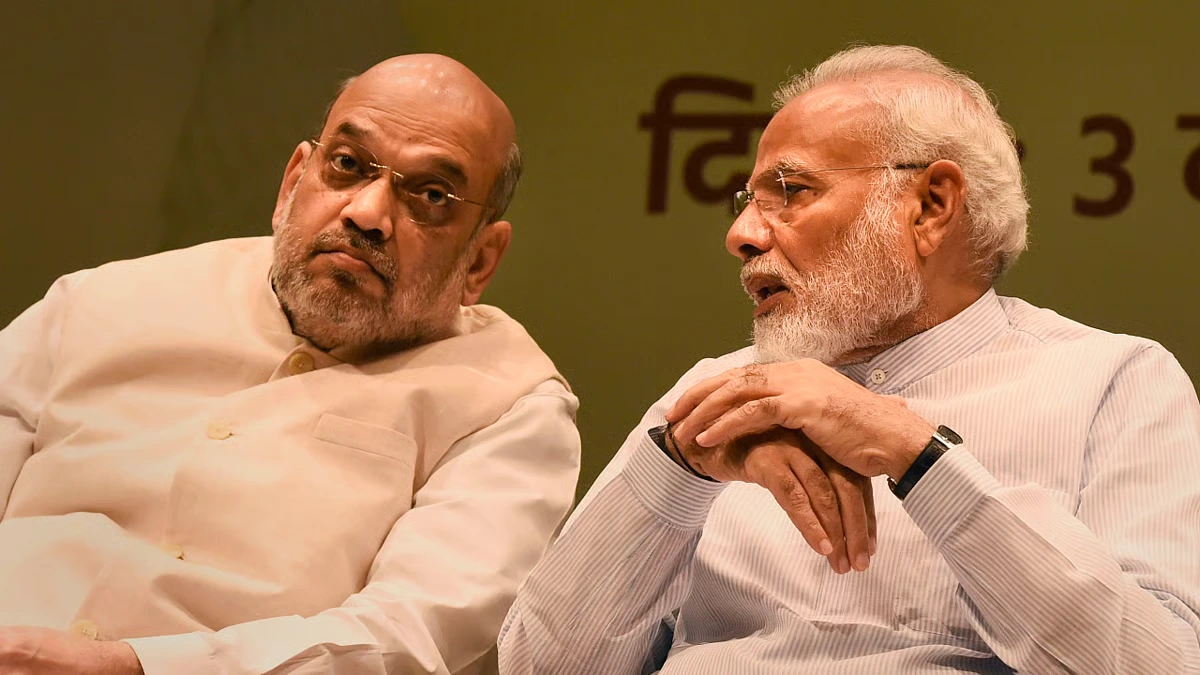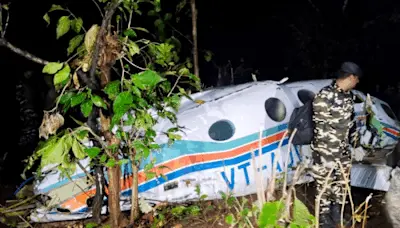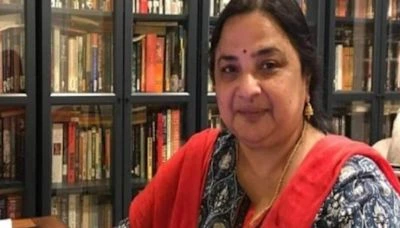25-JUN-2025,7:050 PM In a passionate and evocative address, Union Home Minister Amit Shah painted a vivid picture of Prime Minister Narendra Modi’s courage and resilience during the dark period of the 1975 Emergency. As the nation observed the 49th anniversary of the Emergency, Shah revisited PM Modi’s undercover life as a “sadhu, sardarji, and hippie” — symbolizing his unwavering resolve to fight against what Shah termed the “murder of democracy.”
The occasion provided not only a reflection on India’s political history but also a reminder of the sacrifices made by leaders who refused to surrender to authoritarian rule. Through his speech, Amit Shah aimed to underscore Modi’s long-standing commitment to democratic values, even before stepping into high office.
Amit Shah Highlights Modi’s Disguised Resistance During Emergency
Ground-Level Resistance by a Future Prime Minister
In his remarks at an event organized by the BJP to mark the Emergency’s anniversary, Amit Shah recounted little-known stories of Narendra Modi’s activism. At the time, Modi was a pracharak for the Rashtriya Swayamsevak Sangh (RSS), and with arrest warrants issued against him, he was forced to live a life of disguise and evasion.
“Modiji changed appearances—from a sadhu, to a sardarji, to even a hippie. He did all this not to escape fear, but to continue underground work,” Amit Shah stated, evoking both surprise and admiration from the audience.
Shah went on to explain how Modi helped organize underground resistance literature, coordinated communications between jailed opposition leaders, and took part in secret strategy meetings—all while staying one step ahead of the authorities.
Remembering the Emergency: A Dark Chapter in Indian Democracy
The Emergency period (1975–1977), imposed by then Prime Minister Indira Gandhi, is often described as one of the darkest eras of Indian democracy. Fundamental rights were suspended, thousands of political activists were jailed, and the press was heavily censored.
In commemorating this period, Amit Shah stated that the Emergency was not just a political move but an “assault on India’s Constitution and federal structure.” He emphasized that it is important for the younger generation to understand this phase so that history doesn’t repeat itself.
The Role of Modi and RSS in Anti-Emergency Movement
RSS Cadres Worked Tirelessly, Says Amit Shah
During his speech, Amit Shah acknowledged the role of the RSS and its members, including a young Narendra Modi, in organizing resistance against the Emergency. Shah mentioned how RSS workers became the backbone of the underground resistance, operating covertly to spread awareness and maintain morale among citizens.
Modi, being a full-time RSS pracharak, used his deep knowledge of local terrains and strong community links to avoid capture and continue operations. His disguises were not just theatrical—they were strategic, allowing him to move across states, distribute literature, and maintain networks that helped keep the flame of dissent alive.
Shah Links Modi’s Past to His Present Leadership Style
Amit Shah argued that Modi’s experiences during the Emergency shaped his political personality and leadership style. “The resolve, discipline, and strategic thinking that you see in PM Modi today were molded in those testing times,” he stated.
According to Shah, the qualities of self-sacrifice, grassroots activism, and ideological commitment remain deeply embedded in Modi’s leadership—even as he now occupies the highest elected position in the country.
Political Reactions and Interpretations
Opposition Criticizes “Glorification” of Emergency Resistance
While Amit Shah’s speech received applause from BJP supporters and aligned organizations, opposition parties criticized it as an attempt to divert attention from current political issues. Some leaders from the Congress questioned the timing of the remarks, suggesting they were politically motivated ahead of upcoming elections.
Congress spokespersons also accused the BJP of focusing on history rather than addressing contemporary concerns like inflation, unemployment, and press freedom.
Historical Accuracy and Context Matter, Say Analysts
Political analysts noted that Amit Shah’s speech reflects a larger BJP narrative that portrays the Emergency as a key turning point in modern Indian politics. “This is not the first time Shah or the BJP has revisited the Emergency era,” said political historian Dr. Anjali Menon. “It plays into a broader messaging strategy that contrasts the past suppression of rights with the current leadership’s ‘democratic credentials’.”
Nevertheless, Menon acknowledged that Modi’s underground work during the Emergency is documented in multiple biographies, lending authenticity to Amit Shah’s retelling.
Amit Shah Calls for Eternal Vigilance to Protect Democracy
“Democracy Can Never Be Taken for Granted”
Ending his speech on a strong note, Amit Shah warned that the Emergency should not be viewed as a mere historical footnote but as a cautionary tale. “Democracy can never be taken for granted. It is the duty of every citizen to protect and nurture it,” he said.
He added that today’s India must remain vigilant against any political tendencies—left or right—that try to centralize power and undermine constitutional freedoms.
Youth Should Study the Emergency Period
Amit Shah also urged educational institutions to include more in-depth studies of the Emergency period in school and college curricula. “The youth must know how quickly freedom can be lost, and how bravely it must be defended,” he concluded.
He recommended memoirs, documentaries, and first-hand accounts as important learning tools for students to understand the price paid for democracy.
Conclusion: Amit Shah Rekindles National Memory of Struggle and Sacrifice
Through his powerful account of PM Modi’s resistance during the Emergency, Amit Shah rekindled a national memory of struggle, sacrifice, and moral conviction. His depiction of Modi as a disguised freedom fighter—moving stealthily from city to city—adds another layer to the Prime Minister’s political biography.
Whether one agrees with the interpretation or not, it is clear that the BJP sees value in revisiting the past to strengthen its political narrative. For Shah, the Emergency is not just history—it’s a lived experience that continues to shape the values and decisions of India’s leadership.
Source : ANI





